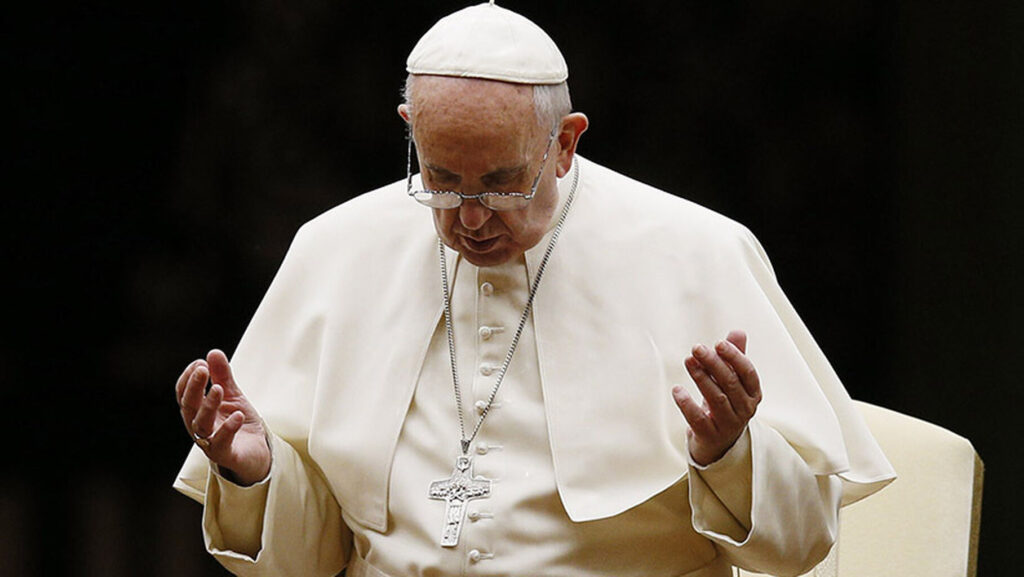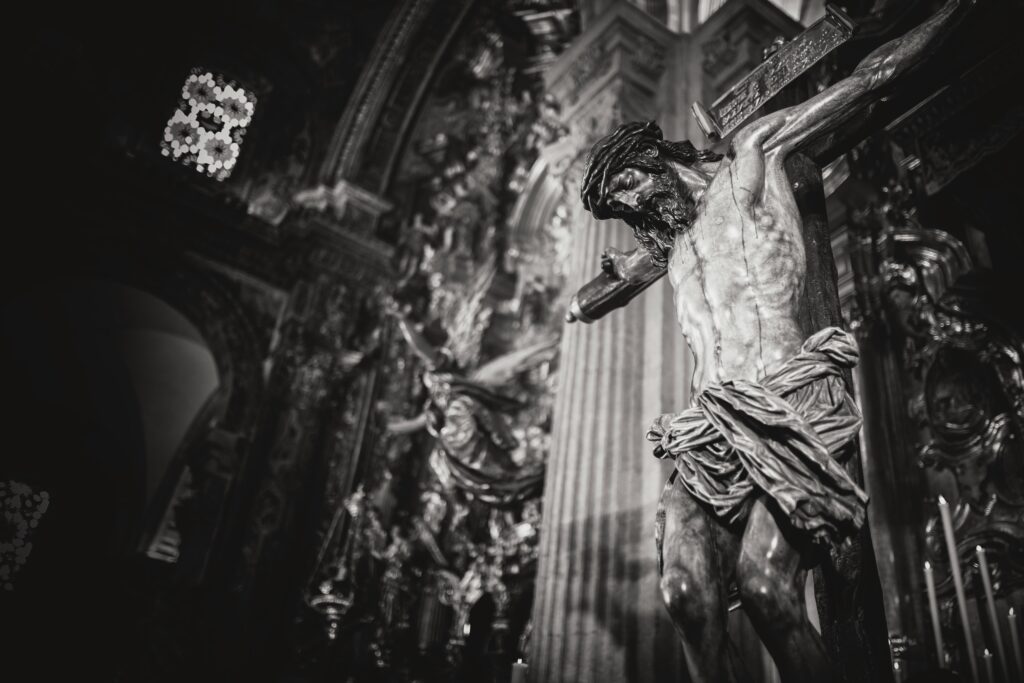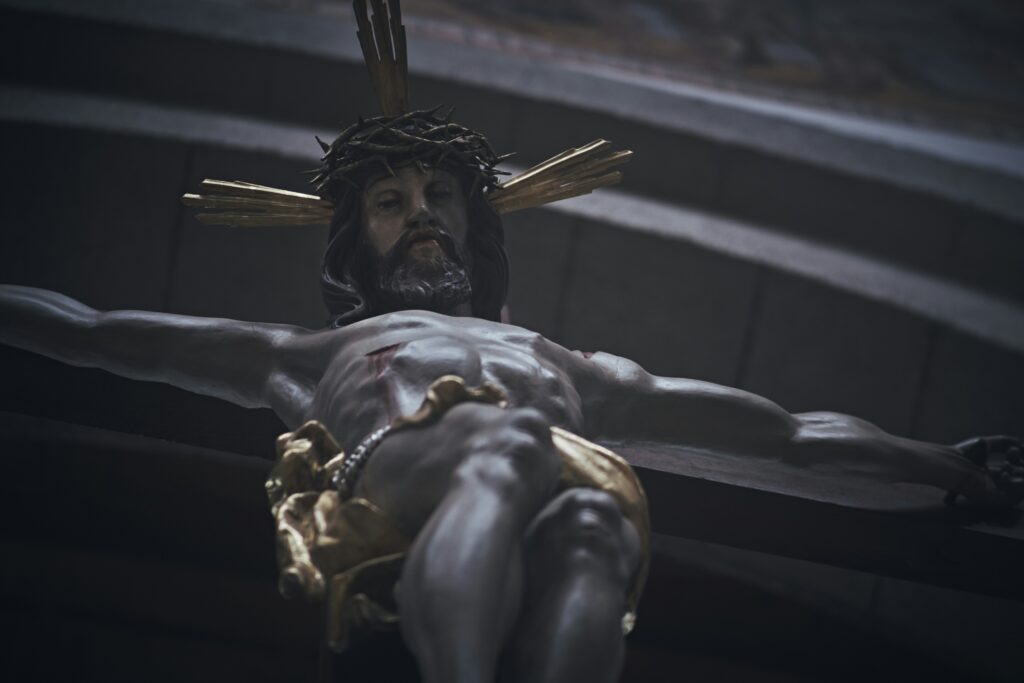Praying for the Pope
For the Christian faithful, prayer for the head of the Church, for the Pope, is an indispensable part of our union with God

The whole Catholic world was surprised by the Pope’s prayer intention for the month of November: the Pope himself. The intention of the “Pope’s Worldwide Prayer Network” is the Pope himself, and it has been made known, as is usually the case, by means of a nice “video of the Pope”. In his message, Francis explains that being Pope does not mean that he is no longer human, and he implies that an enormous burden falls on his shoulders that he cannot carry alone. On the contrary, he needs the support of the prayers of the faithful people, who give him strength and help him to discern at every moment what God wants.
As I watched the brief but moving video, I was particularly struck by two things in his message. The first is that he asks “to be judged with kindness”. That we should look kindly on him. In reality, it is not our role to judge anyone, least of all the Pope, the Vicar of Christ on Earth. But he asks that we look upon him benevolently or, in other words, that we habitually give him the benefit of the doubt. The Pope, in principle, wants what is best for the Church and for the world, and he enjoys a special assistance from the Holy Spirit, let us trust him. It is true that he is a man like us, and therefore begs the prayers of the faithful people, who in reality have the joyful duty to pray for their pastors, especially for the Pope, whoever he may be, today it is Francis.
The second detail, which is not without a hint of humour, is the end of his message, when he laconically says: “pray for me. Please”. It reminded me of an anecdote of the simple but sometimes unenlightened faith of the people: on one occasion, in the Peruvian Andes, a simple Indian girl went with the village priest to ask for “a mass of harm” against another person. In other words, we must pray for the Pope, not that he die soon, but that he guide the Church under the impulse of the Holy Spirit, and that by doing so, God will make him a saint.
The two petitions: benevolence and praying for the Pope, convey an underlying idea that is basic to the faith: unity or, as theologians would say, “the ecclesiology of communion”. In other words, the most important thing is often to be united; unity often takes precedence over efficiency, or even reason. In the Church it is like in marriages: the important thing is not who is right, but to be united. And the Pope is the visible bond of unity; that is to say, without the Pope, we are nothing, spiritually speaking, even if, hypothetically, “we are right”.
It is therefore understandable that the strength of the Church is prayer, as well as the supernatural character of prayer. We are united by very strong supernatural bonds, the communion of saints, which we proclaim every Sunday when we pray the Creed at Mass. In the face of Francis’ critics – of whom there are many – this attitude reveals his strong supernatural sense and his deep humility. In the same way that we, without the Pope, are nothing, catholically speaking; in the same way, the Pope can do nothing without the spiritual strength brought to him by the “holy people of God”, as he likes to call the Church. His request inevitably brings to mind a similar gesture by a saint of our time, St. Josemaría Escrivá. He very often used to end meetings with more or less numerous audiences, asking for the alms of prayer, with an expression similar to that of Francis: “pray for me. That I may be good and faithful. Francis, like Saint Josemaría, is thus on the same supernatural “wavelength”. This is a concrete way of refuting those who accuse Francis of turning the Church into an NGO, forgetting its supernatural character.
For the Christian faithful, an indispensable component of our union with God is prayer for the head, for the Pope. Christ, Mary, the Pope, are the great loves of the Christian; it is not only a matter of praying, but also of wanting, even more, of loving. Moreover, as we can see from the urgency of Francis’ message, it is a necessity. The strength of the Church, after all, is none other than the strength of prayer. Therefore, although we might think that there are other more urgent things to pray for, which could very well be the Pope’s intention for this November, such as peace in the Holy Land or in Ukraine, Francis has preferred that we pray for him, to catechise us in our duties of filial piety, and so that Francis’ prayer, for these and other urgent causes, such as the problem of migration or the ecological crisis, may have the strength of the prayer of the whole Church in union with its shepherd.
Related

“Praying is an immense privilege”
José Miguel Ponce
17 April, 2025
3 min

Cardinal Felipe Arizmendi: Jesus Continues to Suffer
Felipe Arizmendi
17 April, 2025
4 min

The classics educate in humanity
Francisco Bobadilla
16 April, 2025
3 min

Words That Illuminate Our Crosses
Mario J. Paredes
16 April, 2025
6 min
 (EN)
(EN)
 (ES)
(ES)
 (IT)
(IT)

